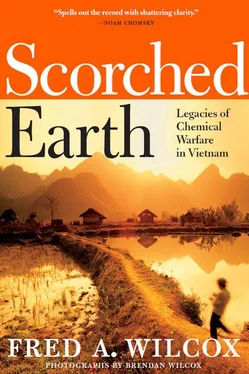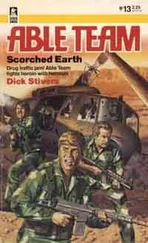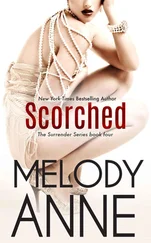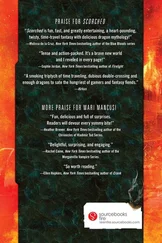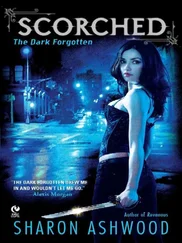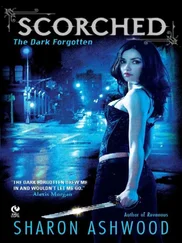I am very glad to read about your appeals. I write this letter with the hope that you will help us. Ask the American government and dioxin manufacturers to be responsible for these disastrous effects.
My family as well as millions of Vietnamese Agent victims is very grateful for your concern and kindness. I wish you great health.
Nguyen Thi Hong Trung Nam Que Trung, Queue Son, Quant Nam, Vietnam, July 21st 2004

Dear Prof. Kenneth Herrmann,
With reference to your article titled “Vietnamese AO victims need to say” in Labour newspaper, I write this letter to share our situation with you and your program.
In the war from 1964 to 1975, my husband was a driver in the army. He was stationed at A Sau. A Luoi.
We had had two normal children (one son, one daughter) before he joined in the South battlefield. However, after coming back from the war we had one more child in 1980. Unfortunately, she was abnormal. She’s only 13 kilos weight, keeps crying days and nights. I went to have her cured, but it was useless because the doctors all said that she was born mentally retarded. She was blind, paralyzed. She realized nothing about the world around her. I was so sad to know that dioxin from her father’s body had passed to hers causing her diseases.
Now she is twenty-five years old, but she is only a child. She knows nothing except crying. I have to help her with everything in her daily activities. My family, therefore, meets with too many difficulties.
As far as I am concerned, you and the “SUNY Brockport Vietnam” program want to aid AO victims. I write this letter with the hope that you will help us to partly compensate for the great losses that were caused by American troops in the war.
Finally, I wish you and your colleagues health and success.
Many thanks!
Nguyen Thi Cam Bao 102 D4 Vong Cau Giay, Ha Noi

Dear Prof. Kenneth Herrmann
My family are AO victims.
My Professor, I am Nguyen Quynh Loc, born in 19(?). I joined army at the battlefield of the South in 1972. At 1977 I went North. After I had completed my mission, I came back and got married.
We have three children. The eldest daughter is Nguyen Thi Huong Giang, born in 1988. She has a nervous disease.
The second is a boy. Nguyen Minh Phu, born 1990. He has no arm.
The last son is Nguyen Duc Tho, born in 1993. He has myasthenia, gets worse nutrition, has difficulty growing.
I myself am a 4/4 wounded soldier. I have a wounded skull, and three spine joints were damaged. Seventy-five percent of my stomach was cut out. My liver, my spleen, kidney, and bladder were disabled and damaged because of the AO effects. Especially my second child Nguyen Minh Phu. He now is fourteen and studying in the sixth class level. He studies hard and well. But I am worried that he often has headaches, is dazzled. He sleeps all day. He has carbuncles everywhere in his body, especially on his feet and arms.
We are very poor. My wife is weak, but she has to nourish her sick husband, disabled children. So we can’t live normally and the children can’t go to school. We have invited to Hanoi by the newspaper television station vTV5 to be on the “Family Maker” program. The children were taken care of by the government and leaders of organizations. Phu has attended the general congress of the Vietnam Red Cross, and AO Victims Fund.
My family writes to you respectfully, my Director. Please compose a call to all humans for help. Our family needs your help very much.
Minh Phu’s father Nguyen Quynh Loc Tam Hop Village, Tho Thanh, Yen Thanh, Nghe An Province

One afternoon, Ken Herrmann visits a small home outside of Danang. Accompanied by Miss Hien, the chief of section social worker for the Danang Red Cross Chapter, and My Hoa, program administrator for the SUNY Brockport Study Abroad Program, he meets Nguyen Giao, the thirty-nine-year-old father of three girls, aged twenty, seventeen, and ten. Mr. Giao is lying upon a mat, unable to walk. His entire body is covered with tumors the size of golf balls. Large soccer ball sized tumors hang from his legs and chest. His skeletal arms and legs are bowed.
When Mr. Giao was a child, his family lived less than one mile from a military base in Danang. Helicopters sprayed the area with something that killed all the fish. One day he ate potatoes that had been doused with Agent Orange. Before long, small tumors started growing on his torso, and within months or a few years, his friends had started to die. In 1980, tumors sprouted like massive mushrooms from his body, leaving him in constant pain, with terrible headaches and fevers. He’d been bedridden for the past ten years.
Sometimes his wife buys painkillers to try to give Nguyen some relief from his pain, but the $3.04 he receives from the government doesn’t stretch very far. The family’s neighbors help them a little, and Mr. Giao’s wife grows rice and vegetables, cleans houses, and washes clothes to add to the family income. She worries about her husband and children.
“He doesn’t eat much now. He often just lets his food sit in a bowl on the floor, but he can still feed himself if he wants to,” she tells her visitors.
Nguyen’s daughters have also developed small tumors, and they suffer from fevers, headaches, dizziness, and vision problems. No one else in this family has ever had these kinds of conditions.
“It all began with my eating a potato and drinking water that had been sprayed.”
Asked what he would like to say to the Americans who caused his family’s illnesses, he pauses for a very long moment. Nguyen stares intensely at Herrmann.
“I don’t blame Americans. I think it is my fate. If they can help my daughters I hope they will.”
Miss Hien tells Herrmann that before they were exposed to Agent Orange, this family and thousands of others had no history of these strange illnesses. They’ve all been tested for exposure to dioxin, and tests indicate that they have been. They all lived in areas that were heavily sprayed with Agent Orange.
Herrmann opens another beer, removes his glasses, and watches great dark clouds roll in from Lake Erie.
“The numbers of victims and the severity of their symptoms are staggering,” he says. “One family’s grandfather was VC and was sprayed. His son was born with tumors. His grandson was born with tumors. It is obvious that this legacy will haunt Vietnam for generations. One wonders why it does not haunt the conscience of America.”
When Ken Herrmann boarded a “freedom bird” in 1969, he swore that he would never return to Vietnam. Certain that the plane wouldn’t be shot down, he cheered with other young men, now veterans, and settled in for a dinner of airplane food steak.
“We were safe. We were going home. We had survived the hell known as the Vietnam War. Over time, I realized it was not the nation I had fled at all. It was the war. I had never left the nation at all. It had stayed with me.”
Professor Herrmann’s staff and the students he asked to help out could not keep up with the avalanche of letters from all over Vietnam. If only these letters could be read on the floor of the US House of Representatives, to members of the British Parliament, to the French Assembly, to people throughout the world who would, if they just knew the circumstances, be willing to help victims of Agent Orange.
Ken Herrmann is not the type to tell war stories. Ask him a question and he will answer, directly, not at all concerned whether you might appreciate his answer. Until I asked about his own exposure to Agent Orange, he didn’t mention the endless fixed-wing and helicopter spray missions over the Que Son and Hiep Duc valleys.
Читать дальше
